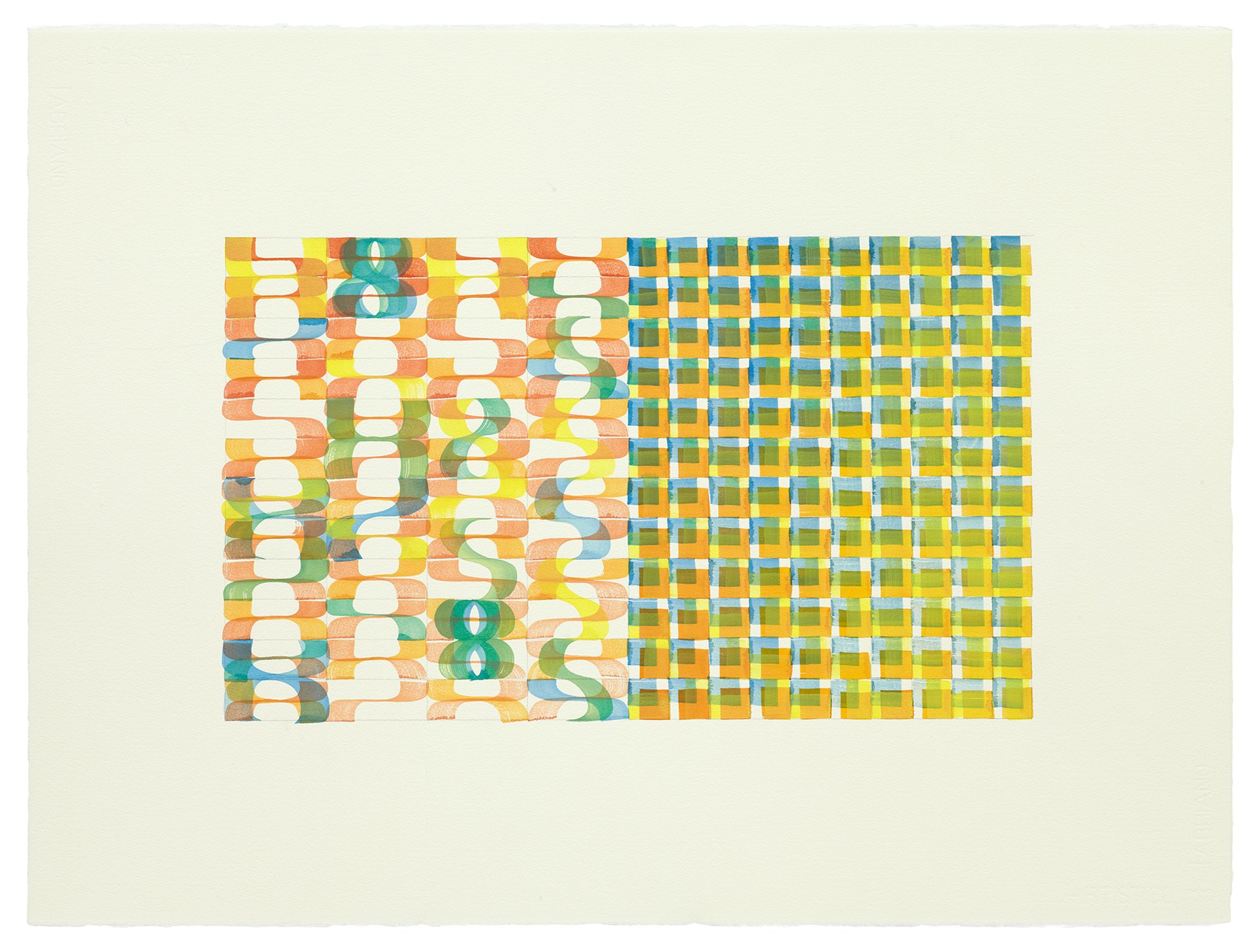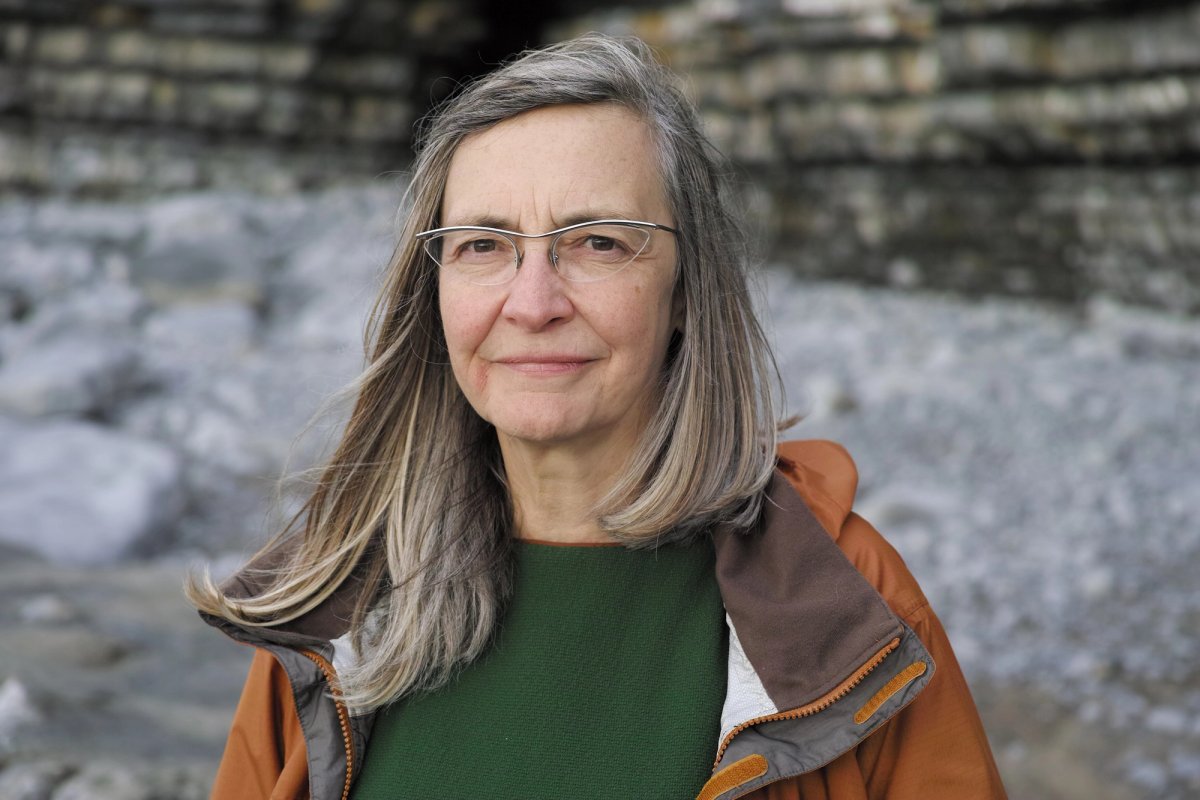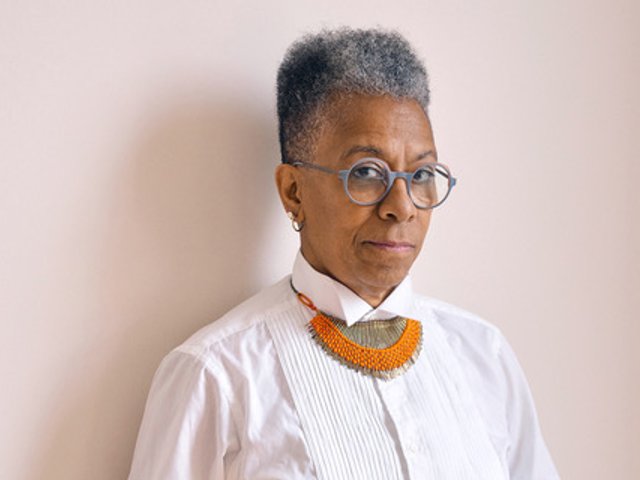The sixth annual Freelands Award has been given to the Middlesbrough Institute of Modern Art (MIMA). This enables the North Yorkshire institution to host a major solo exhibition dedicated to the Belgian artist Jacqueline Poncelet that will take place in 2024.
The £100,000 award was presented by the Freelands Foundation to Poncelet and Elinor Morgan, MIMA’s head of Public Programmes, at a packed dinner held last week in the exhibition galleries at Freelands Foundation’s headquarters in Primrose Hill, north London.
The annual prize is given to a UK arts organisation based outside London to present a major show, including significant new work, by a mid-career woman artist whose work may not have yet received the acclaim or public recognition that it deserves. It was established in 2016 by the philanthropist Elisabeth Murdoch, who started the foundation in 2015 “to give an increased number of people the chance to engage with and enjoy the arts in the UK, with a particular focus on education.”
The past Freelands Award winners are: Fruitmarket Gallery with Jacqueline Donachie in 2016; Nottingham Contemporary with Lis Rhodes in 2017; Veronica Ryan and Spike Island in 2018; Hepworth Wakefield and Hannah Starkey in 2019 and MK Gallery with Ingrid Pollard in 2020.

Jacqueline Poncelet, here and there no.12 (2009-10). Courtesy the artist
Poncelet will receive £25,000 of the £100,000 prize, and her MIMA show will include ceramics, sculpture, painting and textiles along with aspects of her large-scale architectural work in a survey of a career spanning over 50 years. There will also be newly commissioned works engaging with the manufacturing traditions of the region, which will encompass linen production, rag rugs and steelwork.
“Over 50 years Jacqueline Poncelet has demonstrated a quiet tenacity and commitment to learning and making that we at MIMA greatly admire,” said Morgan. “Winning the Freelands Award is galvanising for us as a team and for the communities, students and artists we work with,” she added. For her part, Poncelet, who studied at Wolverhampton College of Art and the Royal College of Art in London, declared her desire to “put pattern back into Middlesbrough”.
The selection panel for this year’s award included Sepake Angiama, artistic director of Iniva (the Institute of International Visual Arts); Donachie; Robert Leckie, director of Spike Island; and Courtney J Martin, the director of the Yale Centre for British Art in Connecticut.
As well as the announcement of the Freelands Award, the dinner also marked the launch of the Foundation’s sixth research report into the "Representation of Women Artists in Britain". This annual report is written and researched by artist and academic Kate McMillan, and the 2021 iteration contains the latest data and essays that explores the intersectional impact of social class and racial background on women artists.
The 2021 report aims “to challenge the British discomfort around discussions of gender, race and class” and its findings further confirm the importance of encouraging and rewarding institutions for showing the work of older women, and especially women from all backgrounds.
For despite making up close to 20% of the UK’s population, the report states that apart from Gus Casely-Hayford, the recently appointed (male) director of V&A East, “there are no Black and Brown people running major institutions in or outside London and offers the grim statistic that “only 16% of public art commissions went to Black and Brown artists, and none of those completed in 2020.” For women, it’s even tougher, with the report concluding that “for Black and Brown working class women, a creative life is too often out of reach.”
So despite the valuable work being done by Freelands, and the increasingly diverse exhibition programmes of many of our institutions, it seems there’s still a great deal to be done to prevent the UK’s art world from being dominated by the privileged, the male and the pale.



